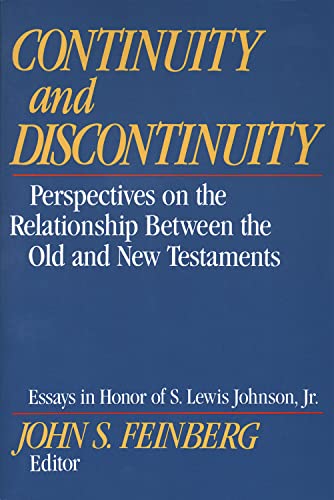Volume 16 - Issue 1
Foundation or façade?
By Christopher J.H. Wright‘Fact is stranger than fiction’, was how I began the editorial for the last issue. But fiction has a way of exposing the truth or giving us a sharper perspective on the facts. A well-aimed fiction can entice the evildoer to incriminate himself, as Nathan’s parable before David so skilfully proved. And in the hands of a master story-teller like Jesus, brilliantly crafted miniatures of fiction could challenge, teach, warn, illustrate, infuriate, subvert prejudices and invert whole world-views. Sometimes, indeed, it seems that a little fiction expresses a big truth more concisely than a lot of facts. Or that the real life stories are illustrations of a truth conveyed in fiction rather than the other way around. Certainly the parable of the Pharisee and the tax collector (Lk. 18:9–14) condenses enough truth for several epistles to distil, and is illustrated in the factual stories of the rich ruler and Zacchaeus which closely follow it.
Sometimes secular fiction has a similar effect of exposing the truth and opening our eyes to uncomfortable, even frightening, realities. Recently I read Tom Wolfe’s novel set in the raucous world of New York, rent asunder by race, religion and riches. It has some real life echoes in the recent ‘Jogger trial’ there and the City of London fraud trial. There is something faintly biblical about its title, The Bonfire of the Vanities (Picador, 1988), a sort of blend of apocalyptic and Ecclesiastes. And there is plenty that is glaringly biblical in the themes it treats, if not in its language which is often, as the current euphemism goes, ‘explicit’ (not that the prophets were too squeamish for that at times). There are the broad motifs, such as the obscenity of phenomenal wealth and luxury alongside seething poverty, the idolization of self, the destructiveness of promiscuity, the worship of mammon, the perversions of justice, the web of falsehood and deceit. Plenty of echoes from the Torah and the prophets. But there are minor motifs that would draw a nod from the authors of Proverbs or Ecclesiastes too. The tangled net of ‘folly’, the constant anxiety of the social climber, the way those who have most wealth actually never have enough, and how the most insignificant things, like a wrongly dialled phone number or a missed exit on a freeway, can set in motion unimaginable consequences in ever widening circles. Apart from being a superb read, the book kept on setting off in my mind a stream of reflections, which I suppose one has to call, rather dully in the circumstances, theological and ethical.
Of which the most persistent and most depressing was the omnipresent sense of façade. Wolfe skilfully avoids a simplistic ‘goody versus baddy’ plot. It is not merely that almost every character in the story is a complex mixture of good and evil, irrespective of whether they are on the right or the wrong side of the law technically, but that almost no character is in reality what they try to appear to be. Whether hero or villain or one of the lesser characters that get sucked into the deepening morass, everyone seems to be playing the game of building, polishing or salvaging an image. Almost the only person in the story who is innocent in this regard is the seven-year-old daughter of the central character, and even she in her innocence is dashed into the suffering his folly unleashes—another biblical touch. His parental love for her is about the only genuinely unself-centred emotion he has and even that is built into his public façade. The process of justice itself becomes a façade for those who unscrupulously aim to profit from it, personally, politically, sexually or financially. In the end it seems hard to distinguish good motives from corrupt ones.
The overall effect is a devastatingly truthful exposé of the perversity and deceitfulness of the human heart, biblical in its analysis, but without the biblical hope, for even religion is used in the story as a cynically manipulated façade. The worst of the characters have their redeeming features, but the story as a whole has no redemption. Some façades are exposed and destroyed, but not so as to be replaced by the truth. It is just that a different alliance of façades wins a façade of victory—for the time being.
Theologians (and theological students) have human hearts too. And façade building and image polishing are just as much temptations for them as for anyone else. Perhaps even more so since the very skill of their trade enables them to add a veneer as well—that of biblical scholarship or religious authority. One often wonders how much scholarly writing is a kind of game; how much we are influenced, favourably or otherwise, by image and reputation; how much of eternal value lies behind the façade of some names, schools, series, publications—evangelical or not. And as so often, the suspicion boomerangs uncomfortably on oneself. We all know the verbal tricks by which an essay can try to give the impression of more knowledge on a subject than one actually has, the impressive feel of dense footnotes and swelling bibliographies in a thesis, the boost to sales of a celebrity foreword for a new book. All of us who are called by God to the theological task, at whatever stage, need to remember that the warning, ‘Man looks on the outward appearance [the façade], but God looks on the heart’, applies not only to candidates for the Israelite monarchy.
We need, then, constantly and prayerfully to check that all our work is done with integrity of motive as well as having biblical truth in substance and foundation. Otherwise it will qualify for nothing more than Ecclesiastes’ verdict, ‘vanity of vanities’, and perish in the Pauline bonfire.
Each one should be careful how he builds. For no-one can lay any foundation other than the one already laid, which is Jesus Christ. If any man builds on this foundation using gold, silver, costly stones, wood, hay or straw, his work will be shown for what it is, because the Day will bring it to light. It will be revealed with fire, and the fire will test the quality of each man’s work (1 Cor. 3:10–13).
Themelios means foundation, and it has been the aim of the journal from its beginning to be true to that foundation which Paul describes above, namely Christ himself, and, as he adds in Ephesians 2:20, the apostles and prophets. That is to say, we aim not to be a foundation (however much our articles may have been the basis for many an essay!) but to build on one. That is what foundations are for. Not to be preserved in concrete or in an archaeological museum. But to be the solid undergirding of constructive, imaginative, sound and attractive building. Biblical authority is not static but dynamic. It is authority for, authority to. The living God, in Christ and through the Scriptures, authorizes us to live and work and think for him. Not to shore up a façade of status or to cultivate an image. For we already have the highest status available to humans, as sons and daughters of God, and we are being fashioned by him into the image of his own Son.
Why then, you may ask, this new ‘outward appearance’ for Themelios? We hope it is not merely a façade! There is a valid kind of concern about image, when it is a matter of commending the truth of the gospel. The old format of the journal had served us well for fifteen years and we felt it was time for something more attractive and readable. The major reason, however, is that the new format has enabled us to increase the size of each issue and thus have more room for articles and especially the book review section which many readers turn to first! The change of image implies no change whatever in our editorial aims or content. I would still echo the words of Dick France in his first editorial for the journal (Vol. 1.2, 1976):
The more elaborate the building, the more attention we must pay to the foundation. And that foundation, as our back cover will continue to remind us, is not negotiable, the themelios of the witness of the apostles and prophets to Jesus Christ, ‘in whom the whole building is joined together and rises to become a holy temple in the Lord’.
Christopher J.H. Wright
Principal, All Nations Christian College, Ware






